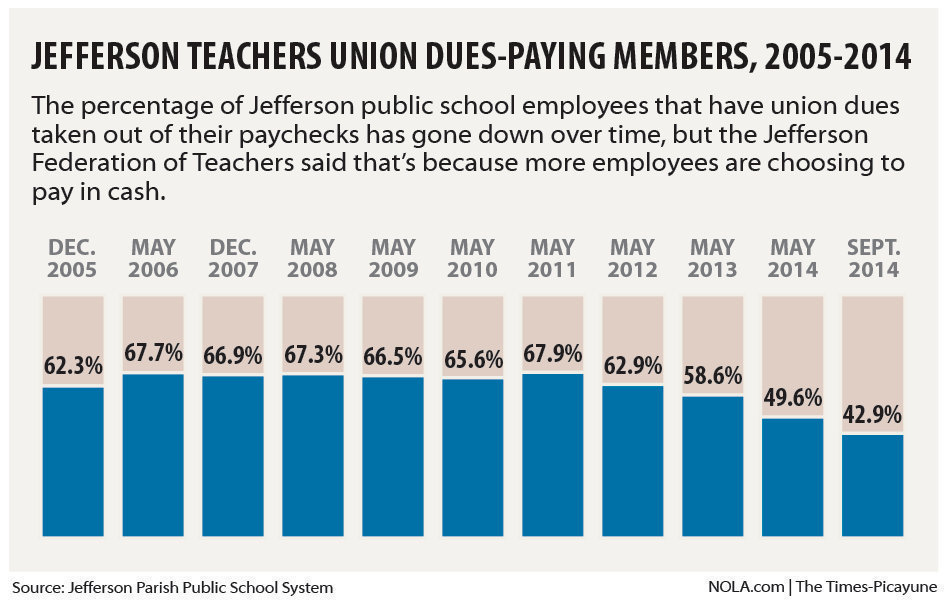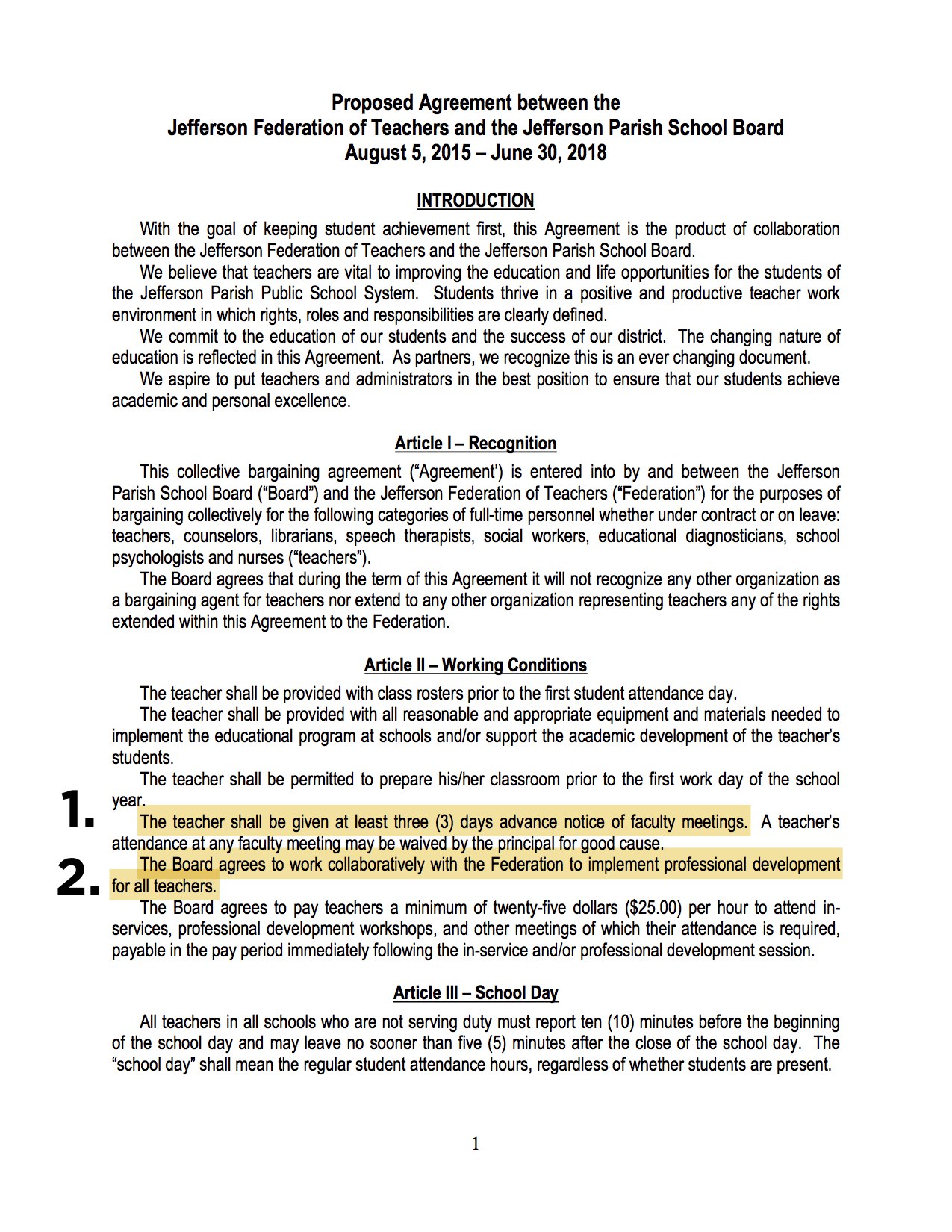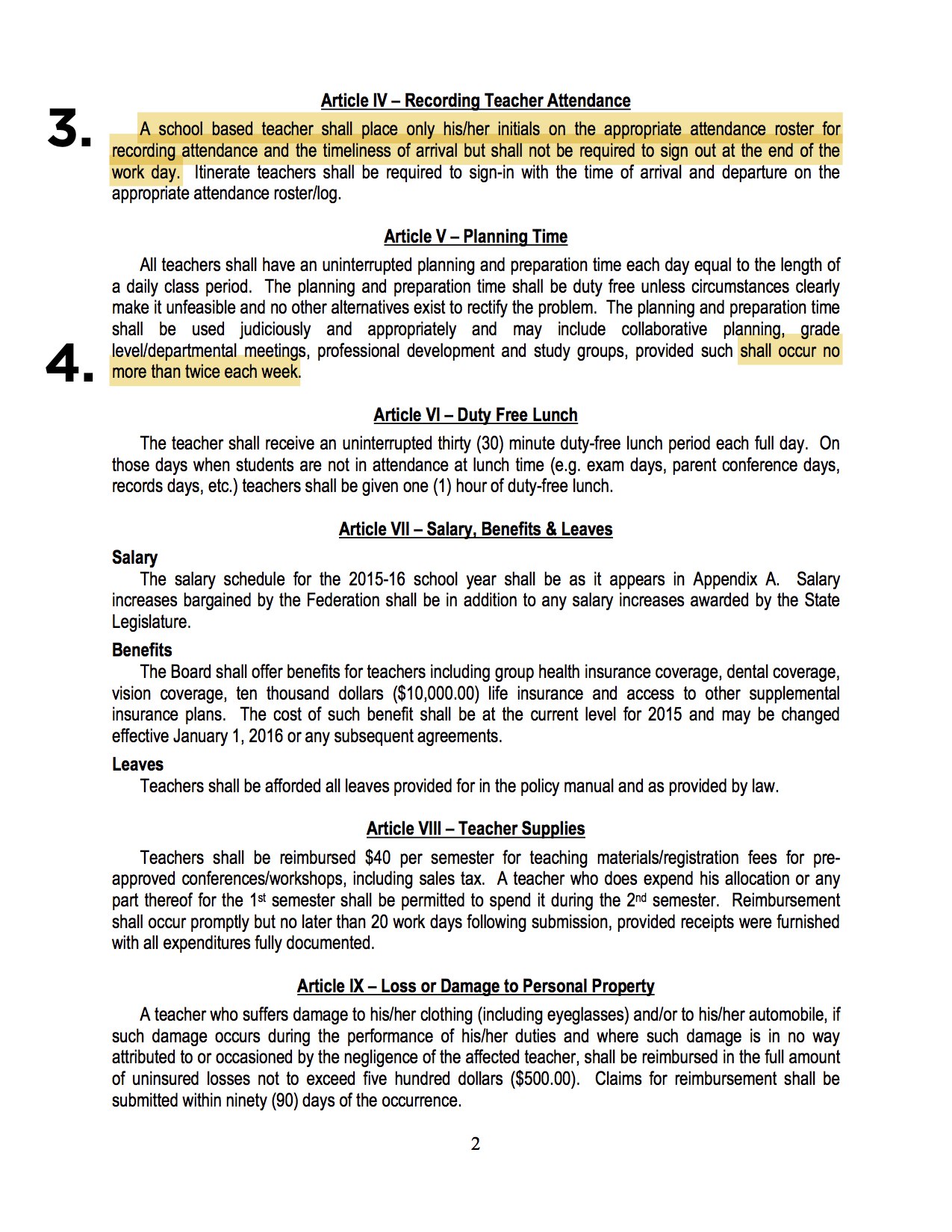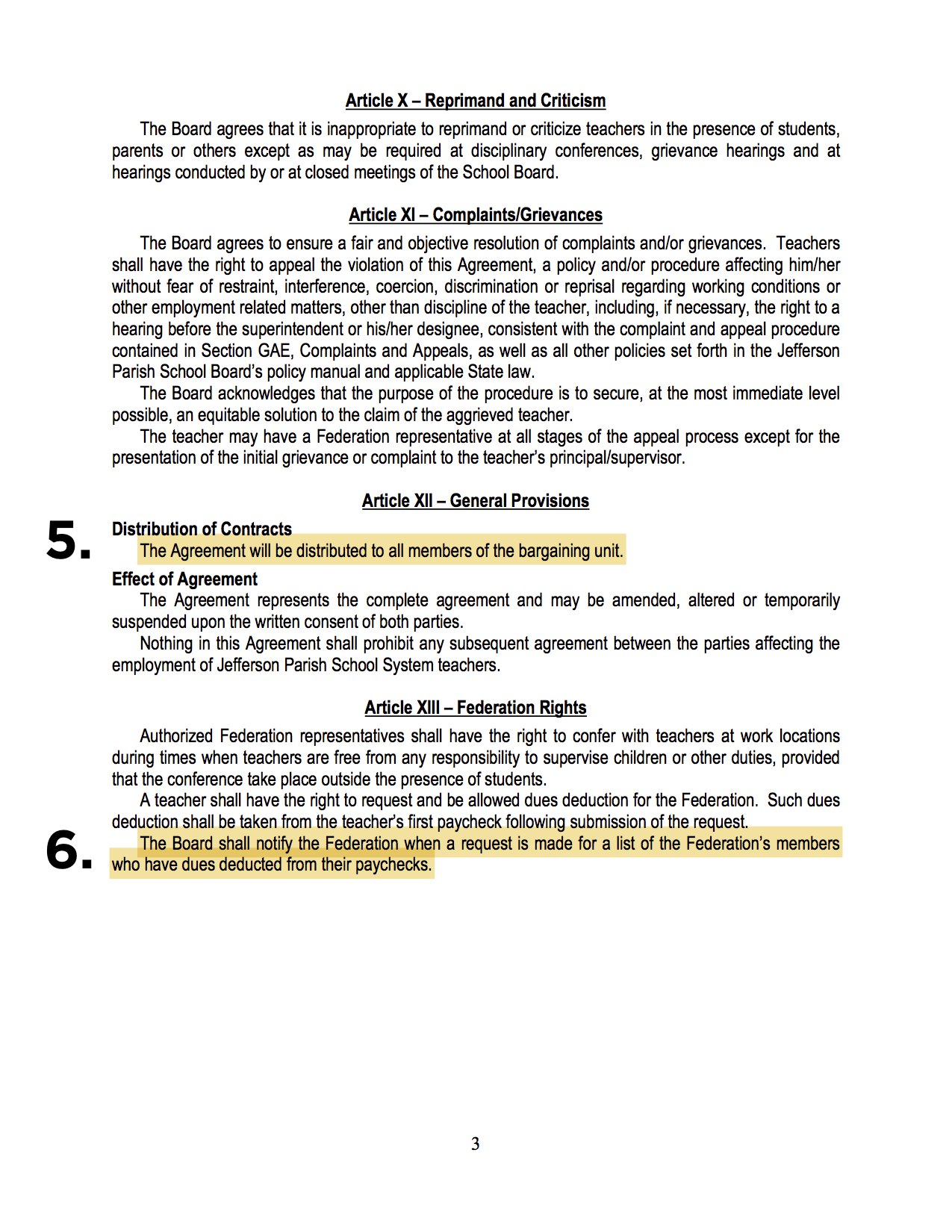Well, we knew this was coming.
After the American Federation of Teachers spent almost $450,000 last fall (significantly more than was raised by all 19 candidates combined) to get pro-union candidates elected to the Jefferson Parish School Board (JPSB), it was clear that the Jefferson Federation of Teachers (JFT) would use their newly elected influence to secure a new contract with the district.
The proposed agreement is a good example of a so-called “thin contract” and is a welcome departure from JFT’s previous 144-page contract that the prior board refused to renew back in 2013. Nevertheless, there are six areas of concern/issues in the new contract that I’ve outlined below:
1. Faculty Meetings
It’s hard to argue that teachers shouldn’t be given advanced notice of faculty meetings in most cases. However the contract, as written, does not make an exception for exigencies, such as a faculty meeting called in the wake an emergency or crisis at a school.
2. Professional Development
The reforms implemented under former Superintendent James Meza1, including the move to school network structure, aimed at shifting the district’s central office away from its long-standing (and ineffective) top-down approach to managing and supporting schools. As a result, responsibility for professional development shifted to school networks, which could then tailor their support based on the needs of the schools they served. Involving JFT in implementing professional development for teachers across the district would not only needlessly complicate the process, but most likely require the district to take a more centralized (and thus, less targeted and impactful) approach to providing support.
3. Teacher Attendance
JPPSS is the largest district in the State of Louisiana, with thousands of employees working across more than 85 schools. Nevertheless, the district still uses an inefficient, paper-based system for tracking teacher and staff attendance. The district should adopt an electronic system in which school-based employees can sign in and out (Why would JFT be opposed to having teachers sign out?) at the beginning and end of their work day.
4. Planning Periods
Here’s where the contract veers away from what should be its focus – sensible job protections – and crosses the line into interfering with school-based management. I certainly understand how much teachers value their planning periods, but it’s not hard to envision circumstances in which a principal may find it necessary to co-opt teachers’ planning time more than twice-a-week – such as when a teacher is placed on an improvement plan, when staff are planning to launch a new school-wide initiative, or when a struggling school needs to quickly and dramatically shift gears. JPSB should never agree to a contract that would prevent school leaders from taking the steps necessary to raise student achievement.
5. Contract Production/Distribution
It seems like this should be responsibility of JFT – also, who would be paying for copies of the contract to be produced?
6. How Large Is JFT’s Membership?
This curious clause in the contract raises a very important question: Does the Jefferson Federation of Teachers actually represent a majority of employees? In October, the Times-Picayune noted that the percentage of school system employees paying JFT dues through payroll deductions had fallen 25% to 42.9% [see chart below]. It would be inappropriate to award a contract to JFT making them the exclusive representative for all bargaining unit employees (which includes teachers, counselors, librarians, speech therapists, social workers, educational diagnosticians, school psychologists, and nurses), if a majority of them are not even members of the union.

- Full Disclosure: I worked as a consultant on several reform initiatives in Jefferson Parish during Superintendent Meza’s tenure. ↩





One Comment
Leave a Reply